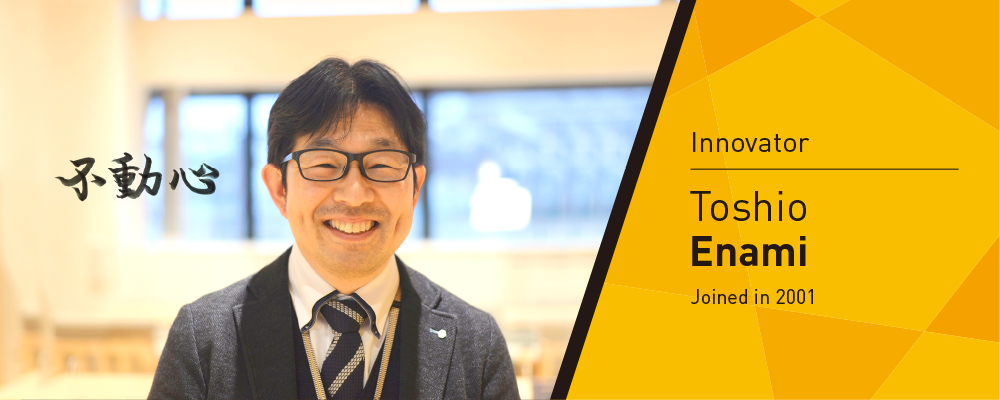FACES

1. Tell me about your background and career thus far and your current job.
I majored in applied chemistry in university. After graduation, I joined a textile manufacturer, after which I worked at a semiconductor manufacturer. At present, I am an employee of Sekisui Chemical. While working at these companies, I earned a master’s degree in production engineering and a doctorate’s degree in information systems, driven by my own interests and needs. In light of this, I have a well-rounded expertise in areas extending from biotechnology, machinery processing and semiconductors to software. Currently, I am the head of the Electronics Group in the Development & Planning Department as a Sekisui laboratory. The group carries out planning and development of new businesses in the areas of semiconductors and communication infrastructure. At all three of the companies I have worked at thus far, I gained experience in a wide range of activities from new business planning and development to plant construction and product transfer. These are my strengths. It is my goal to become a scientist that creates the best in the world. This has been my goal since I was a child and I continue to work maintaining this same dream.
2. What technological innovation do you feel is the most amazing thus far?
3. Discuss the challenges you are undertaking to achieve innovation.
It is my objective to create a “world’s first” once every ten years. In my 20s I created thin substrate for a thin-body Handycam and a carbon wafer for manufacturing DRAM memories. In my 30s, I developed a high-speed LSI for dedicated for use in navigation systems. In my 40s, I developed an epoxy resin for 8GB micro SD cards. At the end of last year, I sent out a press release on a transparent and flexible radio wave reflection film. At the moment, I am maintaining my pace of once every ten years. I am consciously creating a human network to ensure that information comes to me, regardless of whether it is in Japan or broad, so that I can create a “world’s first.” I never say “no” when people from various industries come to be me for a consultation. I make it a point to give advice in various fields. Consequently, every time one of many companies and institutions contracts me, I become aware of what issues there are in the world. I believe that trying to capture the basis and essence of these issues, and making an effort to provide what people are looking will contribute to innovation.
4. What is your on off switch?
I have a tendency to be “on” all the time. So I make an effort to intentional turn myself off. I use two methods. First, I only do what I like. So I immerse myself into my own hobbies. I think about fertilizer combinations to successfully product organic vegetables while gardening and tinker with machinery. I get out of share when I do nothing but think about work therefore I am able to sharpen by sense by coming into physical contract with things I like. Another thing I do to switch off is to force myself to make to think about nothing. I live in Shiga Prefecture but I go to Mount Hiei once every few months for ascetic training. I visit the Acharya (Buddhist spiritual leader) and spend an hour preparing and drinking tea, and then another hour reciting sutras. This goes on for 24 hours. In the beginning, during worship my mind is filled with distracting thoughts. However, after the worship is half over, I have emptied my mind of these distracting thoughts and I achieve a status of “nothingness” and “emptiness,” a part of the Heart Sutra that talks about eradicating all thoughts. By the time I finish, I am mentally reset and my body is brimming with power. When my mind continues to be perplexed by new business development, I lose my position, my layers and the direction in which I am headed. Accordingly, when I want to turn myself on and off, I garden to reset my body and climb Mount Hiei to reset my mind.


